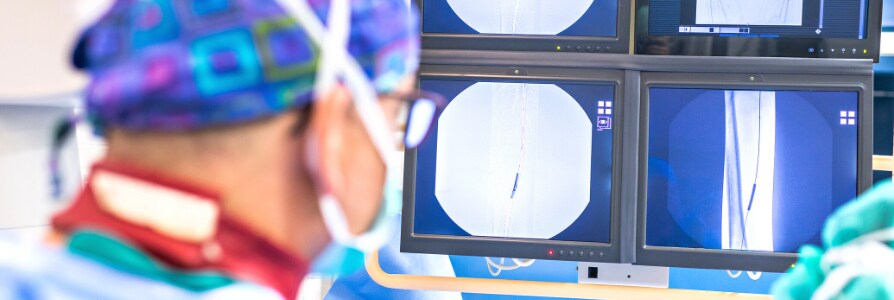Interventional Radiology

Trust our interventional radiologists at Faith Regional Health Services to provide minimally-invasive diagnostics and treatment to help you recover faster.
How Interventional Radiology Works
Instead of having a major surgery, your interventional radiologist will make a small incision to insert a tiny instrument, such as a needle, catheter, or wire, and use medical imaging to maneuver through the body to the area that needs treatment.
During these procedures, you may be sedated, or you will be given medicines to help you relax and ease pain. Most likely, you will not need general anesthesia.
Benefits of Interventional Radiology

The biggest benefit of interventional radiology is that it’s often less risky than a major surgery. You’ll often experience:
- Less pain
- Less scaring
- Reduced infection rates
- Quicker return to normal activities
Conditions We Treat
Interventional radiology is a growing field and consistently evolving to be able to diagnose and treat many conditions. One of the biggest areas of treatment is cancer, including being able to put radioactive medications directly into the tumors or cancer cells as well as options to treat the side effects of cancer like blood clots or fluid buildup in your body. Interventional radiology can also be used to treat narrowed arteries, gallstones, or to place central lines.